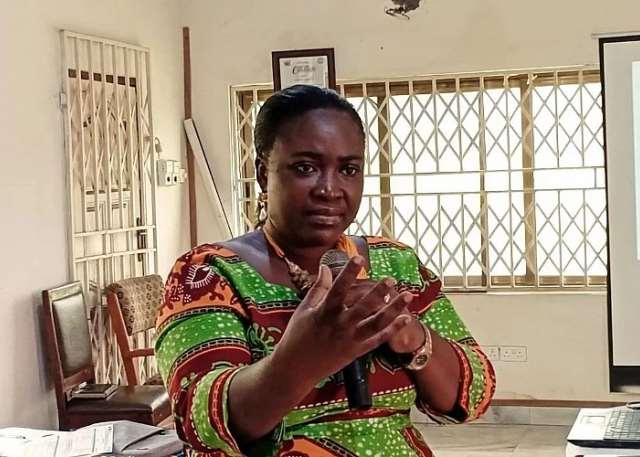Amid growing anxiety over adolescent sexual activity in Ghana, experts are calling for a fundamental reassessment of what it means for teenagers to consent to sex at age 16. While the legislation sets the age of consent at 16, many stakeholders contend that legal permission alone does not guarantee the emotional maturity, education, or confidence necessary for informed decision-making. They argue that the ability to say “yes” should be matched by the power to say “no,” underscoring a gap between statutory rights and practical empowerment.
This debate took center stage at a community training programme held in Akatsi North, Volta Region, under Phase 3 of the Global Programme to End Child Marriage. The event convened traditional leaders, chiefs and queen mothers from the Ave Traditional Area alongside representatives from the Ghana Education Service, Ghana Health Service, and various NGOs. Its purpose was to review local action plans and galvanize community-driven strategies to shield adolescents from early sexual initiation and its attendant risks, such as teenage pregnancy and school dropout.
Volta Regional Director of Gender Madam Thywill Eyra Kpe led the charge in redefining the contours of true consent.

“ Consent does not necessarily mean saying yes, it means having the power to understand and say no ”
Madam Thywill Eyra Kpe
Madam Kpe warned that without comprehensive education on
“ Some parents are advising their girls to emulate friends who get things from men. We must change this ”
Mamaga Awutorlewe IV, Paramount Queen of the Xevi Traditional Area
consequences and boundaries, adolescents, particularly girls, will remain vulnerable to exploitation and uninformed choices. She stressed that the solution lies not in further legislative tinkering but in equipping young people with the knowledge, confidence, and support to make healthy decisions.

Economic hardship emerged as a driving force behind adolescent risk behaviors. Mamaga Awutorlewe IV, Paramount Queen of the Xevi Traditional Area, highlighted how poverty can push parents to neglect their daughters’ well-being or even tacitly encourage transactional relationships.
Mamaga Awutorlewe IV, Paramount Queen of the Xevi Traditional Area, characterized the training as an “eye-opener” and pledging her council’s commitment to develop robust internal strategies to protect children against detrimental cultural practices.
Encouragingly, local statistics indicate progress in Akatsi North’s battle against teenage pregnancy. District Health Director Timothy Mahama reported that the pregnancy rate among adolescents fell from 12.49 percent to 7.79 percent over three years leading up to 2024.
He attributed this decline to coordinated efforts by the Ghana Education Service, Ghana Health Service, and NGOs such as Good Neighbours and International Needs, which have provided reproductive health education, counseling, and strengthened referral systems in partnership with community-based women counselors and the Department of Social Welfare.
Yet the challenge extends beyond girls alone. District Chief Director Madam Rubby Sitsofe Besagah raised alarms about boys under 16 abandoning school to work as commercial motorbike operators. She cautioned that this trend not only compromises educational outcomes but exposes young boys to unsafe conditions. Madam Besagah implored parents and community leaders to prioritize youth education and well-being over short-term economic gains, urging heightened sensitization efforts to guide young people toward constructive paths.
Echoing the theme of collective responsibility, Volta Regional Director of the Department of Children Mr Israel Akrobortu invoked the African adage, “It takes a village to raise a child.” He lamented harmful spiritual or cultural practices that can derail a child’s future and called on communities to remain vigilant, ready to impose sanctions on adults who exploit minors. His plea underscored the need for parents to be consistently present and engaged in their children’s lives, likening attentive parenting to the nurturing care required in farming.
Torgbui Fodi II, speaking on behalf of Paramount Chief Torgbuiga Adogo Agbalekpor IV, detailed new bylaws implemented by the traditional council to regulate youth conduct and hold adults accountable for sexual activity with minors. “We will not tolerate this anymore,” he declared, emphasizing the council’s resolve to report violators and protect the future of their children. His statement reflected a collective vow among traditional authorities to enforce child protection measures rigorously and transparently.
The Akatsi North training concluded with a unanimous reaffirmation that education, community vigilance, and traditional leadership must work in concert to end child marriage and curtail early sexual initiation. Stakeholders agreed that empowering youth to understand consent as both a right and a responsibility will be pivotal in safeguarding their health, education, and potential. By bridging the divide between legal frameworks and lived realities, Ghanaian communities aim to forge a future where every adolescent can steer their own path with confidence and dignity.
Source: Consent Doesn’t Mean Saying Yes: Empower Young People to Say No to Sex at 16



